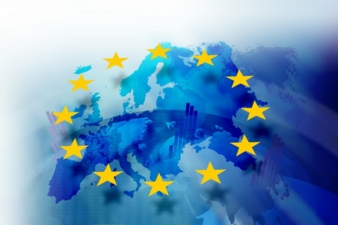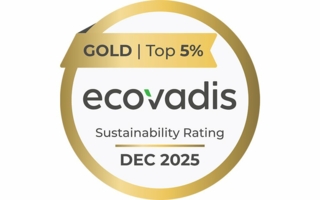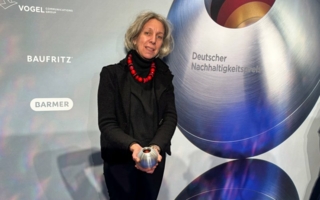08/05/2020 – Small farmholders in Africa — auf Deutsch lesen
EU commitment to cotton
The European Commission’s on-going work on sustainable garment value chains seeks to ensure improvements in terms of labour conditions and human rights.
The membership of the European Union (EU) in the International Cotton Advisory Committee underlines the significance of cotton to the EU economy as well as to its member states that produce, process, trade and consume cotton. In addition to this there is a need to look closely at the development of cotton value chains.
When speaking about value chains it is at the same time needed to dissect the various parts of the value chain – from the small farmer to the final consumer in a high street shop, but also to recognize in particular the challenges faced (economic, social and environmental) of the weakest link of the chain – the small farmholder.
The eradication of poverty, but also economic growth, sustainable production and consumption, decent work and gender equality are in terms of the SDGs key aspects to development. Trade is an essential drive to economic growth, and global value chains, where different production stages are carried out in different countries, have become a dominant feature of global trade. The importance of global value chain as drivers to economic growth, employment and sustainability needs to be embedded within a set of policies and actions to address decent work and reduce vulnerabilities.
As an example the European Commission’s on-going work on sustainable garment value chains seeks to ensure improvements in terms of labour conditions and human rights, including a strong gender equality focus (75 percent of all garment workers are women), and environmental impacts, such as an efficient use of resources and sustainable production and consumption patterns.
Some other EU initiatives could directly benefit cotton value chains. DeSIRA – Development Smart Innovation through Research in Agriculture is an initiative launched in 2017, delivering on increased resilience of agricultural and food systems; and on increased coherence and efficiency of research and agricultural advice in climate adaptation and mitigation issues. Focus areas could be water use efficiency, seeds, improvement of soils and using data and digital farm services. According to the EU there is a need to unleash the full potential of the digital agenda, which is one key component in the Rural Africa
Another example is the “Cotton by products” initiative, contributing to sustainable agriculture, to product diversification, leading to new market opportunities, hence to growth, contributing to environment, and contributing to employment and gender equality.
EU supports the “Cotton roadmap”, covering the C4 countries (Benin, Burkina Faso, Mali, and Chad), developing and promoting inclusive and sustainable regional value chains. It means that cotton is treated not as a mere commodity, but rather as a prime sector, as it deserves to be.
An additional initiative, which was lately undertaken by European Cotton Alliance (ECA), aims to promote the identity features and values of cotton produced in Europe (EU Cotton).
The agriculture of tomorrow in developing countries will go hand in hand with sustainability and diversification of production. Agricultural practices need to be transformed and we need to accompany this transformation. Manufacturing cotton and using cotton-by-products can create lots of opportunities in terms of job creation and growth. Infrastructure, energy supply, as well as policy framework, a strong focus on education and farmers’ organisation, will have to create the path towards a competitive presence on markets.
Extract of the EU Statement at the 78th Plenary Meeting of the ICAC, Brisbane, Dec 2019




